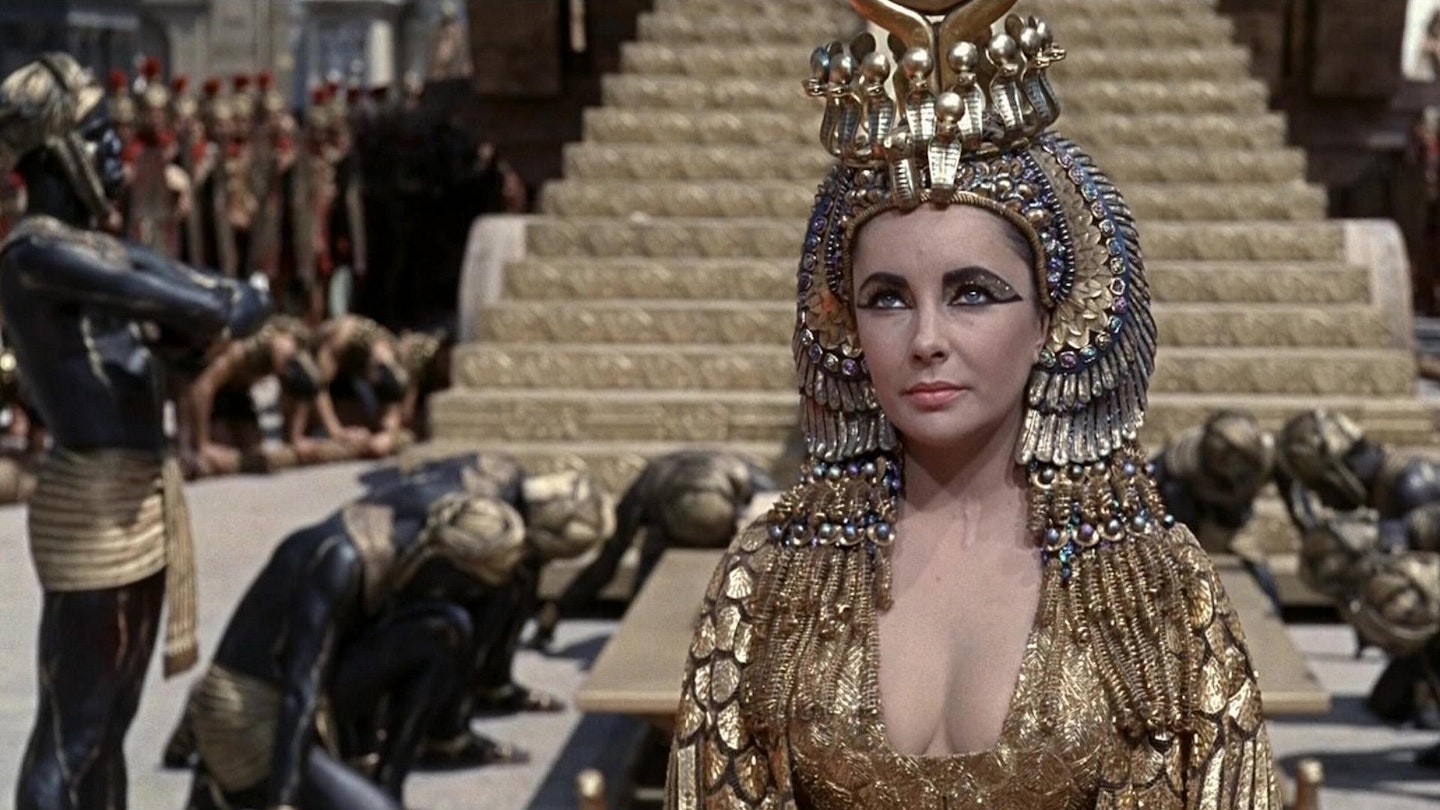Its reputation as a megabucks disaster (it cost $44 million), so lavish you can almost smell the polish, there is no doubting the effort and pomp on display, but Joseph L. Mankiewicz loses track of any human drama amid his giant sets and equally elaborate superstars. The press may have haunted its Italian soundstages, rumours spilling out of an affair to match that of Cleopatra and Marc Anthony betwixt Elizabeth Taylor and Richard Burton, but the film arrived inert, rubbed clean of sensation by the clamour that surrounded it.
Things do start promisingly, with Rex Harrison relishing the chance to fill the sandals of the great Caesar arriving in Egypt to claim both queen and country. He ís swaggering and arrogant, and enunciates like only Professor Higgins aught. When the Ides of March bring their unforeseen bad tidings, both empire and movie lose their prize possession. From here Mankiewicz slows the pace down to a crawl. Taylor looks more concerned with keeping her giant head dresses in place than creating some inner life in her Cleopatra, while Burton does that really irritating pinched face thing, as if the woes of the now turbulent world, or maybe constipation, were stifling his movement. Their great and, inevitably, tragic affair should be torrid and heartbreaking, bringing kingdoms crashing down around their feet, not this dozy trawl through some epic scenery.
There you have it, Mankiewicz opts for splendour — not least Cleopatra’s arrival in Rome on a giant golden Sphinx, a wonderful splash of excess — over action and real drama. The complex political backstory is vague and imprecise, the battles dawdling, the reasons why disaster will be met upon the classical lovers difficult to fathom. The script ran through the hands of a host of writers, but none found a heart (and Taylor would need more than make-up to give Cleo some kick). For four hours this moody, glossy pantomime leadenly plods on, saying much more about the hubris and excess of old-time Hollywood thinking than the burnished glories of an ancient world.




